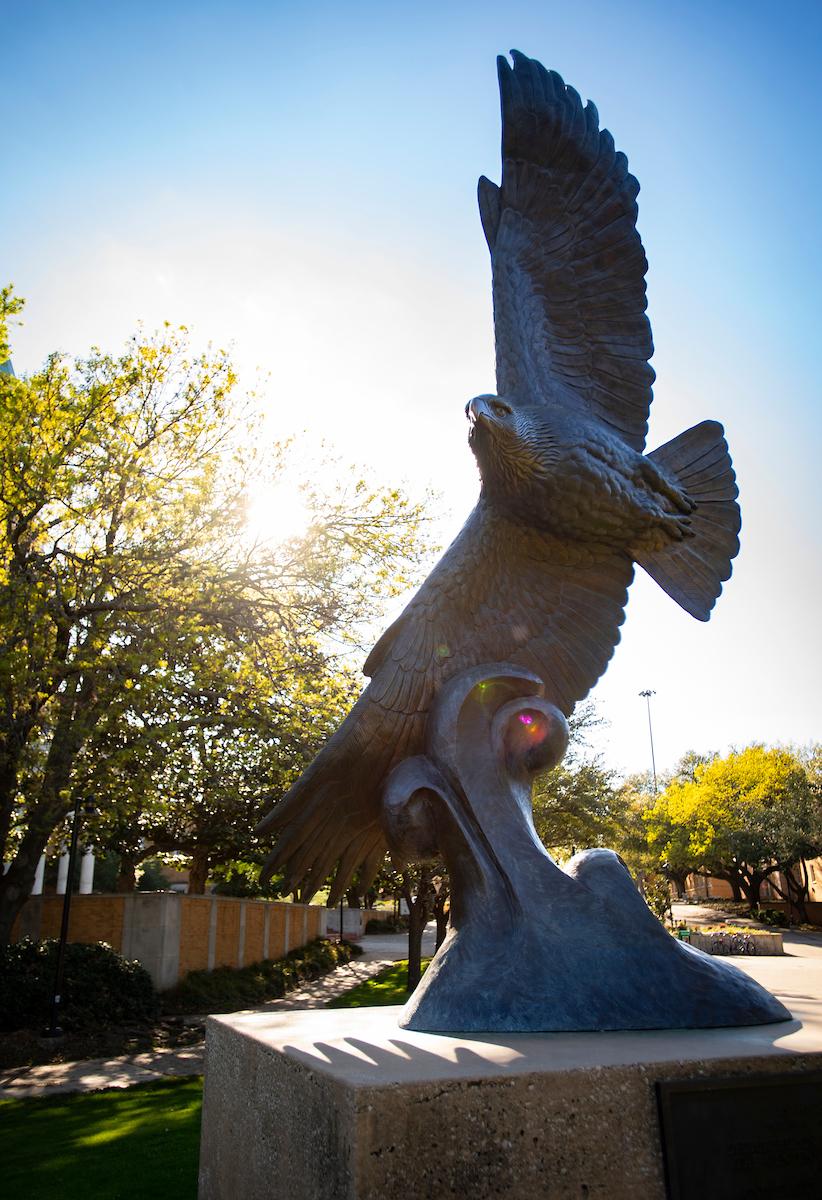Faculty Advocate Network
 The Faculty Advocate Network was created by experienced UNT faculty members to provide
support and guidance for faculty candidate cases for promotion and tenure, grievances
and misconduct violations. These situations can be difficult to navigate alone, especially
for early career faculty, and colleagues who are more familiar with policies and practices
can help clarify the process and provide advice along the way. A Faculty Advocate
is a voluntary opportunity recognized as university service. While the Faculty Senate
tries to accommodate all faculty members who request an advocate, the number of available
advocates is limited and preference is given to promotion and tenure and grievance
cases.
The Faculty Advocate Network was created by experienced UNT faculty members to provide
support and guidance for faculty candidate cases for promotion and tenure, grievances
and misconduct violations. These situations can be difficult to navigate alone, especially
for early career faculty, and colleagues who are more familiar with policies and practices
can help clarify the process and provide advice along the way. A Faculty Advocate
is a voluntary opportunity recognized as university service. While the Faculty Senate
tries to accommodate all faculty members who request an advocate, the number of available
advocates is limited and preference is given to promotion and tenure and grievance
cases.
What does a faculty advocate do?
- Provide perspective that is aligned with UNT policies and practices
- Give guidance about UNT standards and how to meet requirements
- Discuss your case and help you prepare for any concerns that might be raised
- Provide information about UNT policies and practices
- Review materials to ensure evidence and documentation are in order
- Facilitate conversations with administrators to help you find answers
- Answer questions and clarify your options throughout the process
Faculty advocates can also accompany faculty on chair, PAC, college PAC and provost meetings about potential adverse determination.
Advocates do not provide counsel on:
- Issues other than promotion and tenure, grievances and misconduct
- Disputes with chairs or other faculty members and administrators
- Annual evaluation disputes
- Contract renewal or reappointments
- Dismissals for adequate cause
- Post-tenure review and revocation
Need an advocate?
If you are anticipating a case for promotion and tenure, grievance or misconduct violation, don't wait to reach out to the Faculty Advocate Network. When possible, we recommend you reach out one year before the formal review process begins — after you've gathered opinions from your peers, colleagues and mentors — to ensure you have enough time to prepare. Faculty Advocates prioritize pre-tenure promotion and tenure cases and, when available, can advise on grievance and misconduct processes.
Become a faculty advocate
Faculty advocates are senior-level faculty — usually full professors, principal lecturers
or clinical professors. We encourage you to consider becoming a faculty advocate if
you'd like to:
- Deepen your understanding of promotion and tenure policy
- Learn administrative procedures and processes
- Learn about other colleges' and departments' promotion and tenure standards
- Hone your skills in communication, conflict negotiation and advocacy for others
- Be a more effective advocate for yourself
- Learn best practices and enhance your professional advising and mentoring skills
- Collaborate with others to identify recurring issues and be a part of a caring community
- Earn a letter from the vice provost for faculty success recognizing your completion of training and your time commitment for service at the university level
FAN requirements and time commitment
- Varies by tenure cycle and nature of case
- Approximately 10-30 hours per review level (department, college, university)
- 90-minute in-person training (Check the Faculty Success calendar for upcoming sessions)
- Promotion, tenure, misconduct and grievance processes
- Best practices and strategies for success
- Workshop on effective communication, conflict resolution and advocacy
- Workshop on procedure and practice
- Review two recommended online resources or programs
- LinkedIn offerings on stress management and coaching
- Interrupting Microaggressions (IDEA)
Where is FAN in UNT policy?
UNT Policy 06.004: Promotion and Tenure
- An “Advocate” is a tenured faculty member who is well-versed in and capable of clarifying the promotion and tenure process.
- Advocates are preferably an expert in the candidate's field.
- 6th year candidates can have advocates from the Provost's Office, dean or unit administrator.
UNT Policy 06.005: Reappointment and Promotion
- FAN does not serve in contract renewal or reappointment cases, as these are contractual issues.
- Advocates work with promotion cases (applying 06.004 standard) to clarify the process and answer questions.
- Advocates are preferably an expert in the candidate's field.
- Academic administrators do not serve as advocates.
UNT Policy 06.051: Grievance and Misconduct
- The process is different for each unit, but faculty are welcome to seek advice from FAN or other representative, including personal counsel.
- All cases appealed to University Faculty Grievance Committee (UFGC)
- 15-member Faculty Senate appointed (includes two non-tenure track faculty)
- Faculty must exhaust all unit- and college-level grievance procedures before requesting a hearing by UFGC.
- Does not hear grievances regarding non-tenured faculty reappointment or part-time faculty UFGC.
- Non-tenured faculty reappointment and part-time faculty grievances are heard at unit and/or college levels, ending at the dean.